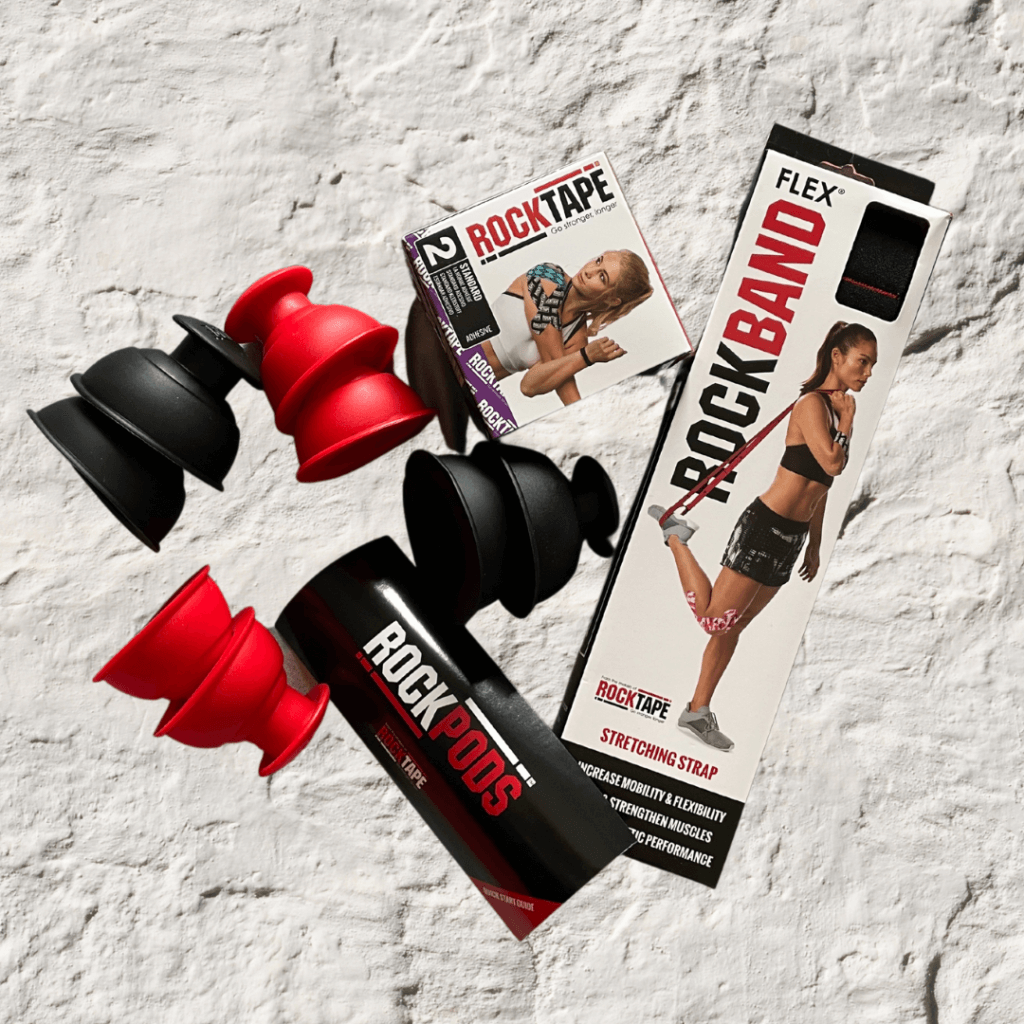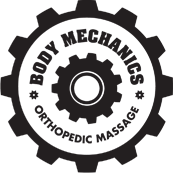What are RockTape and RockPods?

This is a fantastic place to start as not everyone is familiar with RockTape or the products that go along with them. RockTape is a trademarked brand that came out of the whole kenisio tape popularity. Their particular tape is mostly targeted to athletes, specifically for CrossFit. I do not want to get into the discussion here on if keniso tape works or not but I will say, if I want to tape, I really like RockTape best, as it is very sticky (especially their H2O version) and it is made for people who sweat rather unlike the clinical tape. I use it with my sports massage patients and clients.
Over the years, they have come out with several other products and changed from just a taping company into what they say is a movement company, and have many products and classes that fall under that umbrella. There are topical analgesics and warmers, stretching bands, compression movement gear, rollers, and more. For this, we are looking at their version of cupping, which they call “RockPods.”
What was the cupping class?
So the class I took was RockPods, it was a one-day, 6-hour cupping class. It is actually part of a series of a 2-day event that included another product called RockFloss. I took this during the pandemic, so it was entirely online. I used this class for my NYS LMT Continuing Education Credit – or CEU. The class covered the history of cupping, decompression, research around cupping, treatment considerations, exposure therapy, cupping techniques, and thinking out of the box. Our teacher was a CrossFitter named Jen Deiter. This class had a wide range of students, including LMT’s, Physios, Chiros and trainers. I think the broad spectrum of professionals that were in the class shows the usefulness of cupping when done correctly.
After a brief tour of the history of cupping, we went into what RockTape is selling. I want to note this class was not about Wet Cupping or cups you can slide across the body for fascia work. The “pods,” as they call them, are really made for a static application. Which brings me to my next point, how was it to take a manual class online? Well, since you asked…it was actually fine! Since these cups are not about creating drag, there is no single treatment routine that you have to memorize. You practice putting the cups on and taking them off, and the main takeaway from the class is to think of possible uses for that kind of application. This was another benefit of having many kinds of professionals in the class. Each one explained how they might adapt the “Pods” to their own work. Massage therapists might use standard cupping while PTs might focus on more proprioceptive uses.
We learned 3 suction techniques to apply these cups during the class. You can practice attaching the cups to any available part of your body on your own, other than your mid-back. So we spent a portion of the time going body part by body part and exploring what it felt like. The cups are, in general, easy to use and feel pretty good. They get the job done. It is something I could certainly use in treatment for people who like that pulling sensation.
The rest of the class was more about theories and different applications of cupping than manual massage techniques. They theorized what cupping does decompression-wise on the client. By “decompression,” I mean suctioning the skin up into the cup so that it creates lift across the skin. So we would watch a demonstration via video of that usage and have a little discussion and feedback on it. If you are not a manual therapist, this is where things get more interesting for you, as this is the portion where RockTape has tried to approach cupping as more of a modern science-based solution. They spoke about the benefits in general of decompression, ways to use the cups in more of a proprioception re-education capacity, and desensitization (for pain). These ideas are outside the scope of the traditional cupping framework and they are how RockTape moves into their rebranding as a movement company.
What did I think of the cupping class?

I always keep in mind, as a science-informed practitioner, that I will never be 100% satisfied with all manual classes. As far as a treatment, cupping is fairly passive so it falls on the lower end of the value in the intervention spectrum. But as you can definitely apply these by yourself, there is the option to give these tools to a patient to give them a sense of autonomy. Self-treating without being dependent on a therapist is a big plus. If it gives ongoing relief the client can do it whenever they have time and gives them a mental boost to be able to help themselves.
I am also a big fan of mixed-level classes. Having many kinds of professionals in a class adds a lot of value for me. Our health and wellness system has a lot of unwellness in it, and some of that can be healed through respect, collaboration, as well as access to better information. Kudos to RockTape for going jumping through all the hoops to make this class-compliant to Massage CEU requirements. They are a pain in the ass and many companies don’t bother.
I would still love a pod that I can slide, as some people like that sensation. I get that this is not the function of their product so I am not going to get it, but it feels a little limiting. These are tools that are primarily used to treat a “feeling” by creating another feeling, so why not give me all the options!?
The teacher, Jen, certainly knew the product and her way around the body. Since I do a lot of sports massage, I got on with her sporty vibe very well. She presented the material well. She did not overly focus on or push CrossFit or herself, which I deeply appreciate. We do not take courses to give people platforms to push personal agendas.
As far as being online, this course translated very well. It was an easy, fast-moving, way to look at cupping in a number of different ways. I think some other manual courses probably do not lend well to online teaching. This class moved back and forth between lecture and demo so it was paced pretty well.
RockTape is a company with a product – they are not a research company. They don’t have millions of dollars to pour into scientific research, but they took the time and made a genuine effort to make a real case for the benefits of RockPods. They have invested in some research on the lift aspect, although it is not quantifiable and they did make an effort to find some supporting research. Because it is a product, it is a little reverse engineered, the research does not necessarily lead to an endorsement, and we know there is a great body of research that supports a move towards more active interventions. RockPods counter to that would be that their suggested uses require movement and or proprioception.
Still, they had a knowledgeable teacher speak from a place of authority and had people from different professions give various applications for the products. So I would definitely suggest attending it if you’re interested in sports therapies, we are treating humans, not data. Let’s face it, I am a manual therapist in a manual therapy class, so there is that:)
If you are interested in cupping as a modality and just want to dip a toe in, I would give this online course a go. Keep in mind you will need to take another class if you want to learn a full cupping routine. To check out some of our other CEU reviews you can look at Walt Fritz’s Myofascial release seminar.
